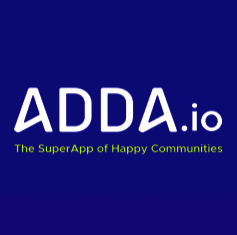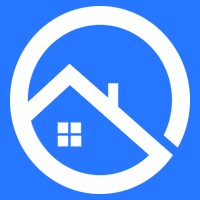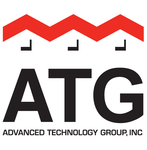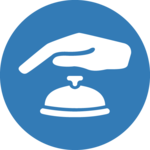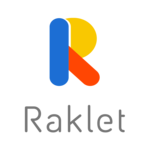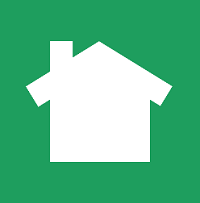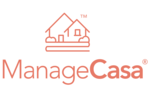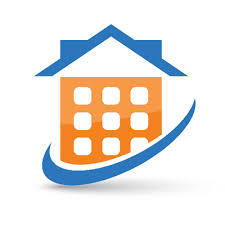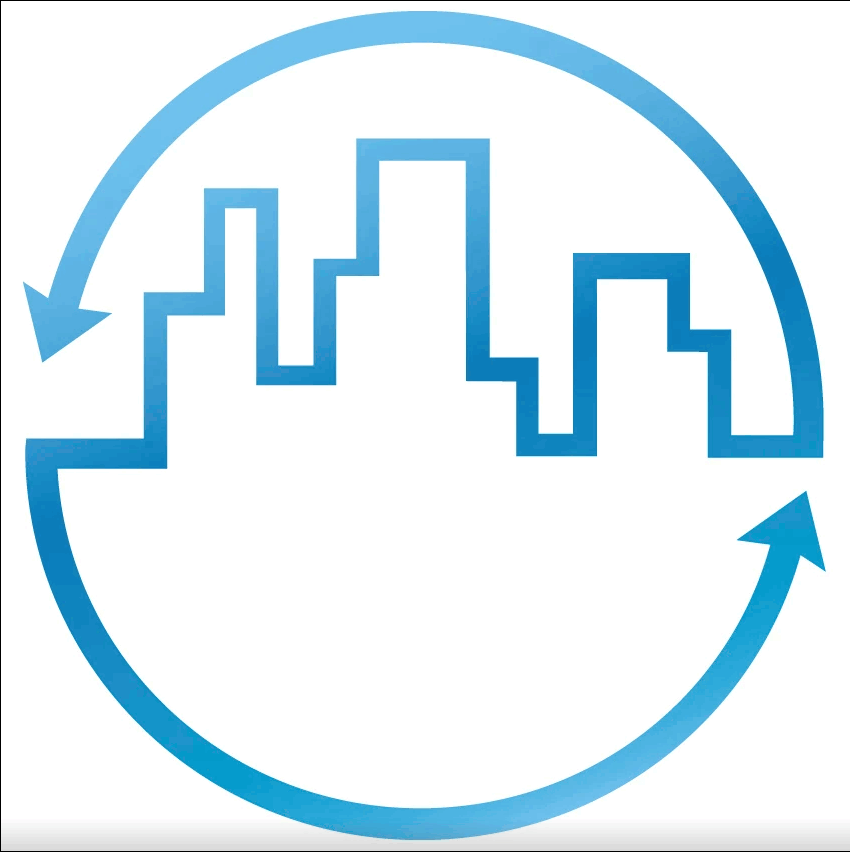Yes, most HOA software is cloud-based and accessible from numerous devices and platforms. This implies that board members, residents, and property managers can access the program from any desktop, laptop, tablet, or smartphone, independent of operating system. This level of accessibility enables more convenience and flexibility in managing HOA tasks and communication.
List of 20 Best HOA Software
ADDA.io is a HOA management software that offers customized solutions for every type of HOA, regardless of its size. Its extensive range of features caters to the requirements of residents, property managers, and HOA boards. With a track record of tr...Read More ADDA.io
MobileUp: Revolutionizing member and event experiences, MobileUp is a mobile app for organizations. With a user-friendly interface, customized content, and seamless networking features, it streamlines operations and increases engagement. Trusted by 6...Read More MobileUp
Innago, the premier rental property management software for landlords and property managers of small-to-mid-sized properties. With a free trial that doesnt require a credit card, Innago simplifies and streamlines your rental management processes. Exp...Read More Innago
C3 Community Management leads the industry with its innovative approach, offering cutting-edge solutions to enhance community engagement and streamline administrative tasks. Our revolutionary software empowers businesses to build stronger and more co...Read More C3 Community Management
Zego is a property management automation software that streamlines tasks, enhances resident satisfaction, and boosts productivity. Featuring top-of-the-line functionality and secure integrations, Zego empowers property managers to prioritize communit...Read More Zego
HOASpace.com is a software for homeowner associations looking for an affordable and all-encompassing website solution. Our straightforward pricing ensures no surprises, and our simple setup process allows communities to easily create customized websi...Read More HOASpace.com
Memberplanet is a group management platform designed to streamline your organizational responsibilities. With features for event organization, communication, and payment management, Memberplanet simplifies member engagement and event coordination whi...Read More memberplanet
Concierge Plus solution for property management. This innovative software simplifies tasks like announcements, service requests, and amenity bookings, enhancing the resident and manager experience. With its user-friendly platform and efficient commun...Read More Concierge Plus
CiraConnect is a cloud-based solution for HOA management. Developed for community associations, self-managed associations, management companies, and developers, this platform simplifies tasks like calendar coordination, online payment processing, mem...Read More CiraConnect
Gladly Free HOA Websites – solution for enhancing your homeowners associations communication and streamlining dues payments. Our user-friendly platform provides modern and visually appealing websites, completely free of cost. With our intuitiv...Read More Gladly Free HOA Websites
Raklet, the premier membership management solution designed to streamline community engagement and simplify administrative tasks. Trusted by over 1,000 organizations, Raklet offers a comprehensive suite of features, including event planning, email ma...Read More Raklet
Nextdoor is a social platform that allows neighbors to easily exchange valuable local information. It boasts a secure interface and rigorous user authentication processes to ensure a safe and credible environment for communication. Say farewell to un...Read More Nextdoor
CiviCRM is a CRM software specifically designed for non-profit organizations. It provides a wide range of robust tools for handling contacts, donations, and events, streamlining administrative tasks and helping non-profits achieve their objectives. A...Read More CiviCRM
Owner Relations is a software designed for condo hotels, timeshare resorts, and property management companies. Our advanced technology simplifies tasks, cuts costs, and improves communication between management and owners. Elevate your operations and...Read More Owner Relations
ManageCasa is a property management software for HOA and rental property managers. Our platform streamlines tasks like maintenance and accounting, saving you time and increasing tenant satisfaction. With user-friendly features and powerful integratio...Read More ManageCasa
Rentec Direct is a highly acclaimed cloud-based property management software that offers unparalleled accessibility and support for landlords and managers of all portfolio sizes. With a proven track record among thousands of satisfied users, this sol...Read More Rentec Direct
Wild Apricot is payment processing tool designed to simplify your organizations financial management. Whether you need to accept online or offline payments, set up recurring payments, or manage multiple sale taxes or VAT, Wild Apricot has got you cov...Read More Wild Apricot
HOA/POA Manager solution for effectively managing Homeowner and Property Owner Associations. With its user-friendly interface, this software simplifies administrative tasks, automatically tracks members, and seamlessly manages your associations finan...Read More HOA/POA Manager
Rent Manager is a property management software designed to simplify all your property-related tasks. Perfect for managing properties of any size, our software streamlines your workflow and keeps your portfolio organized for optimal productivity. With...Read More Rent Manager
Condo Control Central is the premier property management software that streamlines property management. With our comprehensive online system, you can easily communicate and efficiently manage your properties. Experience seamless organization and effe...Read More Condo Control Central
Learn More About HOA Software
- What Is HOA Software?
- What Are The Recent Trends In HOA Software?
- Benefits Of Using HOA Software
- Important Factors To Consider While Purchasing HOA Software?
- What Are The Key Features To Look For In HOA Software?
- Why Do Businesses Need HOA Software?
- How Much Time Is Required To Implement HOA Software?
- What Is The Level Of Customization Available In HOA Software?
- Which Industries Can Benefit The Most From HOA Software?
- Conclusion
What Is HOA Software?
HOA software is an invaluable resource for homeowners associations (HOAs) and property management companies, providing a consolidated platform for managing many elements of community management. From financial management to communication and record-keeping, HOA software streamlines and simplifies critical activities, making it a must-have for every HOA or property management company.
HOA software enables users to conveniently track and collect fees, manage budgets, and generate financial reports. It also enables easy communication with homeowners via announcements, newsletters, and community forums. This not only provides prompt and transparent communication, but also lowers the need for manual paperwork and phone conversations.
Furthermore, HOA software includes tools for managing community events and amenities including pool reservations, clubhouse rentals, and maintenance requests. These features not only assist to organize and schedule work more efficiently, but they also boost overall resident happiness. In addition, HOA software frequently includes accounting and bookkeeping features such as a general ledger and accounts payable, as well as budgeting and forecasting tools.
This makes it easier for HOAs to manage complex financial operations and track spending. Another big advantage of HOA software is its capacity to store and manage key community documents including bylaws, architectural guidelines, and meeting minutes. This provides quick access to critical information for board members, citizens, and vendors, encouraging community transparency and accountability.
When evaluating HOA software, it is critical to seek for features that are tailored to your community's specific requirements. Whether you need a full solution or individual instruments for a specific activity, there are numerous solutions available to fit various budgets and needs. Investing in HOA software allows you to save time, increase efficiency, and improve overall community management.
What Are The Recent Trends In HOA Software?
In recent years, there has been a fast expansion in the use of technology in the operation of homeowners' associations. The introduction of HOA software has changed how associations handle administrative responsibilities, communication, and financial management. As a result, these software solutions have become an indispensable resource for HOA professionals and board members.
In this section, we will look at the newest trends influencing the HOA software market.
1. Cloud-Based Solutions: Cloud-based HOA software is increasingly popular because to its simplicity, scalability, and cost-effectiveness. These technologies enable board members and management teams to access data and complete duties from any location, at any time, as long as they have an internet connection.
2. Mobile Applications: As smartphones become more popular, several HOA software vendors are developing mobile apps that let board members and residents to access information and complete duties while on the road. These smartphone apps facilitate communication between the board and residents.
3. Integration With Accounting Software: Many HOA software solutions now integrate with popular accounting software like QuickBooks, making financial management easier and more efficient for organizations. This integration also reduces the possibility of human error and saves time on manual data entering.
4. Automation And Artificial Intelligence (AI): HOA software systems are now using automation and AI technologies to expedite and automate a variety of activities, including late payment reminders, report generation, and maintenance scheduling. This not only saves time, but also lowers the possibility of errors and boosts efficiency.
5. Online Payments: As more individuals become comfortable with online transactions, HOA software solutions provide residents with online payment choices for their dues, fees, and fines. This function not only improves convenience but also alleviates the load of collecting funds for associations.
6. Communication And Engagement: HOA software systems now include email, text messaging, and social media integration to make it easier to communicate with board members, management teams, and residents. Some software systems include online community forums to encourage resident interaction and collaboration.
Benefits Of Using HOA Software
HOA (Homeowners Association) software is a comprehensive tool for managing and administering HOA communities. It includes a variety of features that can help HOA boards, property managers, and homeowners alike.
Let's look at some of the primary advantages of using HOA software.
1. Centralized Data Management: One of the most significant benefits of HOA software is its ability to centralize all of the community's critical data and information in one location. Filing cabinets are no longer used to store paperwork and critical documents. HOA software makes all of the information simply accessible, well-organized, and retrievable in seconds, saving time and effort.
2. Online Payments: HOA software provides easy and secure online payment alternatives, making it easier for homeowners to pay their dues and fees. This feature eliminates the need to collect checks or cash, lowering the likelihood of manual errors and delays in payment processing.
3. Communication And Collaboration: Effective communication and collaboration between HOA members and management are critical to the effective operation of a HOA community. HOA software includes tools like message boards, newsletters, and community forums to keep everyone informed and active. It also enables smooth contact between homeowners and management, increasing transparency and feedback.
4. Task Management: Managing several jobs and responsibilities can be challenging and time-consuming for HOA boards and property managers. This procedure is simplified by HOA software, which includes task management capabilities that make it easy to assign, track, and complete chores. This functionality also helps to streamline procedures and improve productivity.
5. Financial Management: HOA software has solutions for simplifying and automating various financial activities. Budgeting, invoicing, and spending tracking are examples of such activities. This feature ensures that financial records are accurate and transparent, making financial management easier for the community.
6. Amenities Reservation: In HOA communities, homeowners share amenities like clubhouses, pools, and tennis courts. HOA software enables online reservation of these benefits, removing the need for manual processes and minimizing disputes or double bookings.
7. Document Exchanging: HOA software provides a safe and centralized platform for storing and exchanging critical documents including bylaws, meeting minutes, and governing papers. This feature ensures that all participants have access to the most recent copies of these documents, which improves transparency and reduces confusion.
Important Factors To Consider While Purchasing HOA Software?
When it comes to acquiring HOA software, a number of variables must be examined in order to make the greatest option for your community.
Here are some crucial elements to consider while considering various HOA software options:
1. Simplicity Of Use: The software's simplicity of use is a crucial feature to consider. Look for a user-friendly interface with straightforward navigation that allows board members and residents to easily access and use the software's functions.
2. Features And Functionality: Ensure that the software includes all of the features and functionality required to expedite and optimize your HOA administration tasks. This could include tools for tracking payments, handling maintenance requests, and communicating with residents.
3. Customization Options: Because each HOA is unique, it's critical to select software that can be customized to meet your community's individual demands. This could include the option to generate custom reports or adjust the software's functionality to your HOA's rules and regulations.
4. Data Security: Because HOA software handles sensitive information, it's critical to select a platform that prioritizes data protection. To safeguard the security of your homeowners association's data, look for features such as data encryption, regular backups, and clear privacy rules.
5. Integration With Existing Systems: If your HOA already uses other software or tools, ensure that the new HOA software is functional and integrates with your existing systems. This will eliminate problems with double data entering and streamline your management operations.
6. Customer Support: When purchasing any product, it is critical to assess the level of customer service given by the organization. Look for a software vendor that provides consistent technical assistance as well as troubleshooting and training resources.
7. Scalability: As your HOA expands, so will your management requirements. Choose software that is expandable and adaptable to your community's changing demands. This will ultimately save you both time and money.
8. Pricing: Finally, think about the cost of the product and any additional expenditures, such as support or training. To guarantee you receive the best value for your money, strike a balance between price and features.
What Are The Key Features To Look For In HOA Software?
When looking for the best HOA software for your community, there are a few important aspects to consider.
These features will not only make your management responsibilities more efficient and simplified, but will also aid your community's overall communication and organizing.
1. Online Payment System: Look for HOA software that provides a secure and user-friendly online payment system. This will make it easier for homeowners to pay their dues and fees, saving you time and effort when collecting payments.
2. Document Management: A decent HOA software should include a document management tool that lets you upload and save key documents like bylaws, meeting minutes, and financial reports. These records can now be easily accessed and shared with homeowners and board members.
3. Communication Tools: Check for email and text messaging options, as well as community forums and discussion boards. These tools will allow you to stay in touch with homeowners and keep them informed of crucial developments and activities.
4. Accounting And Financial Management: Select HOA software that includes a solid accounting component. This allows you to precisely and efficiently track dues, expenses, and budgets.
5. Maintenance And Work Order Tracking: The software should include a function that allows homeowners to submit maintenance requests or work orders, and the HOA can track and manage them. This will help to guarantee that community issues are addressed and resolved in a timely manner.
6. Online Voting: As a HOA, it is critical to include homeowners in decision-making processes. Look for software that has an online voting capability, which allows homeowners to participate in key community decisions.
7. Mobile Access: With today's fast-paced environment, having mobile access to your HOA software is essential. Look for a platform with a mobile app or responsive design so you can manage duties and connect with homeowners while on the go.
Why Do Businesses Need HOA Software?
Homeowners Association (HOA) management is becoming increasingly important as the housing market expands. With the myriad chores and obligations that come with operating a HOA, many businesses are turning to HOA software to help them streamline their operations and increase productivity.
Here are some important reasons why firms need HOA software:
1. Simplifies Contact: HOA software enables easy contact with all members of the community, including homeowners, board members, and vendors. Businesses can quickly keep everyone informed and up to date by utilizing services like mass emailing, event calendars, and document sharing.
2. Centralizes Data Management: HOA software serves as a consolidated repository for all critical data, such as financials, resident information, and board meeting minutes. This eliminates the need for several databases while lowering the danger of data duplication and inaccuracies.
3. Efficient Financial Management: HOA software simplifies financial management for businesses by providing features like as budget tracking, online payment choices, and automated invoicing. It also reduces the likelihood of human error and increases transparency in financial transactions.
4. Streamlines Maintenance Requests: HOA software enables residents to submit maintenance requests online, which are then automatically routed to the relevant professionals for prompt resolution. This simplifies the procedure and guarantees that maintenance issues are addressed quickly.
5. Improves Accountability: HOA software provides a full audit record of all activities and transactions, fostering a culture of accountability within the company. This not only helps with record-keeping, but it also guarantees that all decisions are made in a transparent and HOA-compliant manner.
6. Improves Security: HOA software provides secure access to critical papers and sensitive data, safeguarding it against any intrusions. It also enables for configurable permission levels, ensuring that only authorized users have access to certain information.
How Much Time Is Required To Implement HOA Software?
The time necessary to deploy HOA software varies depending on a number of factors, including the size and complexity of your HOA, the exact features and capabilities you require, and your team's preparedness and collaboration. However, on average, the implementation phase can last from a few weeks to several months. To begin, you will need to research and select the best HOA software for your needs, which may take several weeks.
Once you've selected your pick, you'll need to schedule consultations and demos with the software supplier to go over your requirements and configure the software to meet your HOA's specific needs. Once the software is installed and configured, you will need to migrate your data from your current systems, which might take a few days to a few weeks depending on the volume and complexity of the data.
This comprises information about the residents and owners, as well as financial data and other important documents. Next, your team will need to be instructed on how to utilize the software properly. This can take anywhere from a few days to a few weeks, depending on the software's complexity and your team's skill level. It is critical that everyone who will use the program receives proper training in order to reap the full benefits.
Finally, the software will need to be tested and tweaked to ensure that it works properly and satisfies all of your specifications. This testing phase can last from a few days to a few weeks, depending on the complexity of your HOA and software. It is critical to understand that the implementation process does not finish when the software is up and running. Your staff will need to continue using and adjusting the software as needed, which could take several weeks to fine-tune and fully incorporate into your HOA operations.
What Is The Level Of Customization Available In HOA Software?
The level of flexibility offered in HOA software varies by vendor and platform. Some software may allow for more simple customization, but others may provide more advanced customization choices. HOA software typically provides for some level of customisation in terms of branding and design. This means you may include your HOA's logo and change the colors and style to reflect your brand image.
In terms of functionality, certain HOA software may enable you to design custom fields and forms for data collecting and member information. This allows you to customize the software to meet your individual demands and operations. Another level of customization that may be provided in HOA software is the ability to generate bespoke reports. This allows you to collect and analyze data in a way that is most beneficial to your HOA.
Some HOA software platforms also integrate with other tools and applications, allowing for even more process customization and simplification. It's critical to thoroughly evaluate the customization options of any HOA software you're considering to ensure it suits your individual needs and requirements. Remember, the more adaptable the software, the more it may be adjusted to your HOA's specific operations.
Which Industries Can Benefit The Most From HOA Software?
Homeowners' Association (HOA) software can benefit many sectors, particularly those that administer and oversee properties and communities.
This includes:
1. Property Management Firms: Using HOA software can dramatically improve property management firms' operations by automating duties like tracking resident information, collecting dues, and preserving financial records. This software also enables property management companies to connect more effectively with homeowners, handle repair requests, and generate reports.
2. Real Estate Businesses: Real estate businesses that handle properties in HOA communities can also profit from HOA software. This software can help the agency and the HOA board communicate more effectively, allowing for easy access to important information and updates. It also enables real estate agents to keep track of critical dates and rules pertaining to the properties they manage.
3. Home Builders And Developers: HOA software can be useful for managing new residential developments. This program allows them to track building timelines, costs, and property warranties. It also enables them to engage with future residents and the HOA board, ensuring a smooth transfer of ownership.
4. Retirement Communities: Retirement communities frequently have complex HOA structures and many facilities to maintain, making HOA software an invaluable tool. This software can help you manage resident programming, clubhouse reservations, and maintenance needs more efficiently. It also facilitates effective contact with inhabitants and assures adherence to community rules and regulations.
5. Condominium Associations: HOA software can help manage resident information, collect fees, and organize community events. The program also allows for effective communication between the board and citizens, making it easier to handle any problems or difficulties that may develop.
Conclusion
After researching and analyzing several HOA software alternatives, it is clear that choosing the best one for your individual requirements is critical. HOA software helps homeowners associations streamline and manage numerous operations such as communication, accounting, and record-keeping. When considering acquiring HOA software, it is critical to determine your association's budget, size, and unique needs.
This will help you limit down your alternatives and select the best software for your firm. Along with satisfying your requirements, it is critical to ensure that the program is user-friendly and offers adequate customer support. A well-designed and user-friendly system will save time and improve efficiency for both board members and homeowners.
It's also important to assess the software's capabilities, which include online payments, document management, and community portals. Having a complete and all-in-one system can help the association simplify processes and save money over time. Furthermore, it is recommended that you request a demo or trial of the program in order to gain a better idea of its functionality and how it will fit into your organization's operations.
It's also beneficial to read reviews and get comments from other HOA communities who use the same software. Finally, choosing the best HOA software should be an informed decision based on your association's needs and budget. Careful evaluation of features, ease of use, and customer support will result in a successful deployment and seamless operations for your homeowners association. Choose thoughtfully and position your organization for success with the correct HOA software.
HOA Software FAQ's
Can HOA Software Be Accessed Across Multiple Devices And Platforms?
Is HOA Software Future-Proof And Adaptable To Emerging Technologies Like AI, Blockchain Or IoT?
Yes, HOA software is intended to be future-proof and adaptable to new technologies such as AI, blockchain, and IoT. To keep up with technological advancements, HOA software is constantly updated with new features and integrations.
This guarantees that HOA software is still current and efficient, offering excellent solutions for managing HOA activities. HOA software's ability to interact with numerous developing technologies allows it to expedite procedures and increase overall management efficiency for HOAs.
Is There A Free Trial Offered To Assess HOA Software Before Committing?
Yes, most HOA software vendors provide a free trial period so that consumers can evaluate the software before committing to a purchase. This helps potential buyers to learn more about the software's features, user interface, and overall functionality.
It is suggested that you take advantage of this trial to confirm that the software fulfills the needs and regulations of your homeowners association. Some free trials may require users to enter credit card information, but they can cancel before the trial period finishes to avoid being charged.
Does HOA Software Offer Data Security Features And Meet Regulatory Compliance Standards?
Yes, most HOA software includes powerful data security measures like firewalls, encryption, and multi-factor authentication to secure residents' sensitive information. Furthermore, the program assures compliance with a variety of standards, including the General Data Protection Regulation (GDPR) and the California Consumer Privacy Act. These capabilities give HOAs and homeowners peace of mind while managing personal data and adhering to legal requirements.
Can HOA Software Integrate Seamlessly With Existing Tools And Platforms?
HOA software is intended to streamline and centralize numerous management activities in homeowner organizations. Good HOA software should be able to work seamlessly with other tools and platforms, such as accounting and communication platforms.
This allows users to save all of their information in one location, preventing duplication of effort and reducing the possibility of errors. Before selecting HOA software, make sure it is compatible with your current tools and platforms to enable a smooth integration process.

